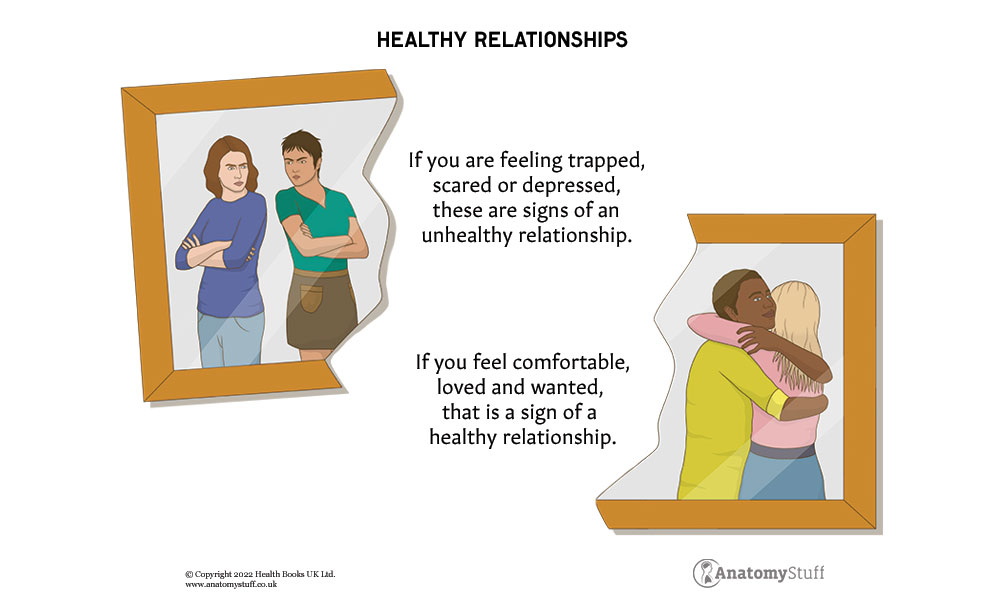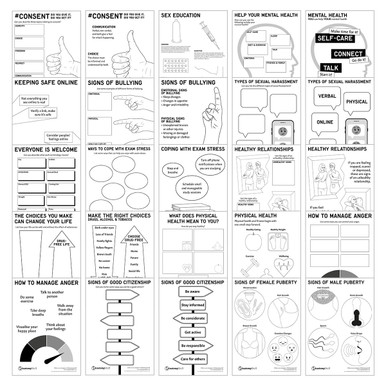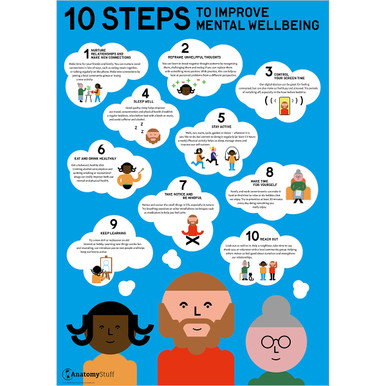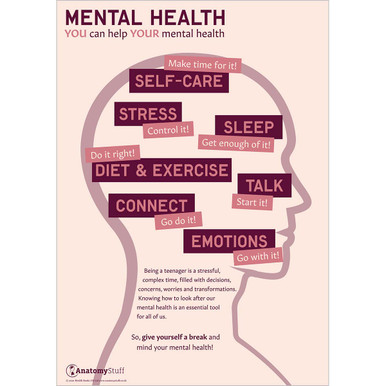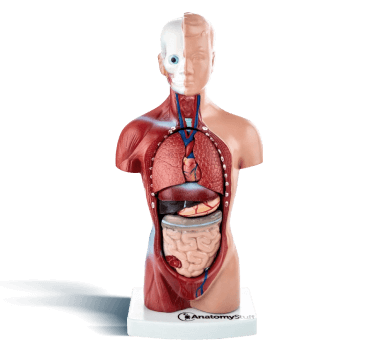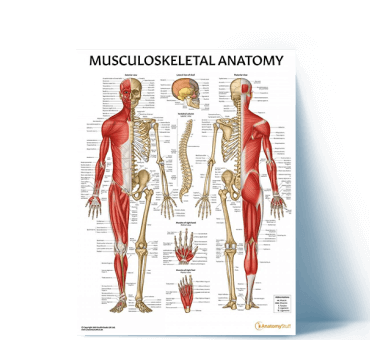Healthy Relationships
There are many different types of relationships in our lives. Family relationships, friends, peers, teacher/student, romantic or sexual relationships, basically, where there is a relation or a connection with two or more individuals, there is a relationship.
Our relationships with other individuals or groups can have a huge impact on our mental health. We are more likely to be happy and confident when we have healthy relationships. When we have unhealthy relationships, we are more likely to feel negative and unhappy.
What are the characteristics of healthy relationships?
Healthy relationships are built on honesty, trust, respect, and open communication between the people who are in them. They also require both people to work hard and compromise. There is no power imbalance. They can make their own judgments without fear of punishment or vengeance, and they make decisions together.
In a healthy sexual relationship, both partners should feel comfortable, be able to be themselves, and never feel pressured to engage in sexual activity.
Healthy relationships have the following elements at their core
Consent and being comfortable with no pressure or coercion is a reflection of a healthy relationship. There are no set rules for providing or withdrawing permission; you may withdraw your consent at any moment.
Healthy disagreements
It’s expected in all fair relationships that you will disagree with each other on certain issues from time to time. It’s quite OK to have a few issues that you and your partner can’t agree on. To agree to disagree is acceptable in certain situations.
You have a positive mood and feel supported.
Make sure you’re OK once the euphoria of a new relationship wears off: Is your partner a source of joy and comfort to you? How do you feel about yourself right now? If you’re experiencing any stress or a lack of support, speak to your partner about it.
Free PDF Downloads
View AllUnhealthy relationship characteristics
Disrespect and control are hallmarks of unhealthy partnerships. Prior to things getting out of hand, it’s critical that people learn to see the warning signs of toxic relationships. Relationships that are headed in the wrong direction include the following characteristics:
Control
One partner makes all the choices, and they instruct the other on how to spend their time or how to dress. They attempt to keep the other partner isolated from their friends and family because they are envious.
Hostility
At times there can be disputes or one partner may antagonise the other. There can be times when you may be unhappy about an issue, but don’t say how you feel because you don’t want to offend the other person. It is probably wise to communicate when you feel like this so as to avoid resentment building.
Disrespect
One partner mocks or undermines the other partners’ interests and views or makes light of the other partners’ hobbies and interests.
There are several ways in which toxic relationships may be defined, and in some cases, the definition of toxicity is subjective.
Mental health is affected by an unhealthy relationship
A toxic relationship, negatively influences your quality of life by increasing sadness and anxiety, interfering with your sleep, and driving you to adopt unhealthy behaviours.
You may build a barrier between yourself and the rest of the world if you’re frequently in a stressful and emotionally abusive situation. Toxic relationships may be draining. You can only use so much brain space in a toxic relationship. If you’re depressed, you’re less likely to want to safeguard and increase the value of your present investments. Everything is a lot worse when you feel alone. Disconnecting from people may cause feelings of isolation and worry.
Toxicity causes your thoughts to spin out of control. Having a pessimistic outlook on life will cause you to see the world less positively. You’re also putting yourself in a state of constant emotional and mental anguish. You could be subjected to someone who is continuously critical of you, your behaviour, and your emotions if they are toxic. It’s possible that you, too, may eventually begin to degrade yourself. Having a bad connection with oneself can be a result of being mistreated. When this happens, you may lose faith in your talents, dreams, and intuition. It is critical to nurture and safeguard one’s inner power. It’s time to remove toxic relationships if they threaten your sense of self-worth and safety.
Related products
View All






